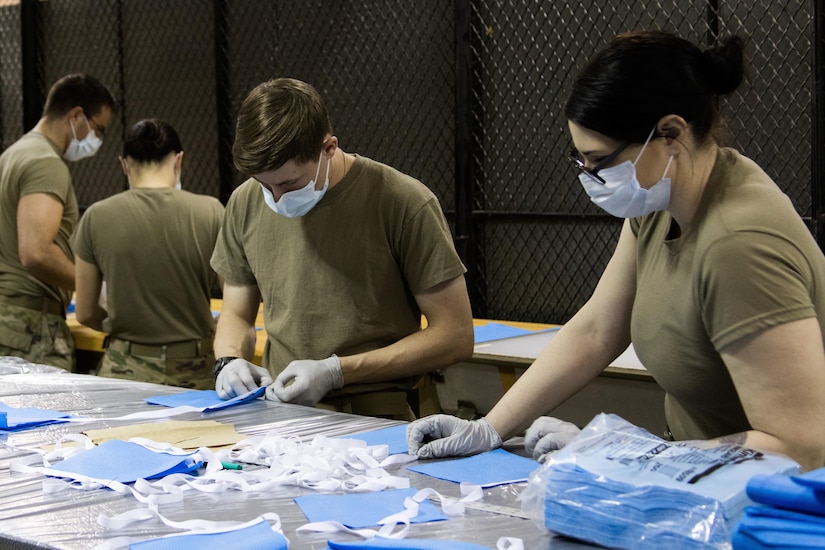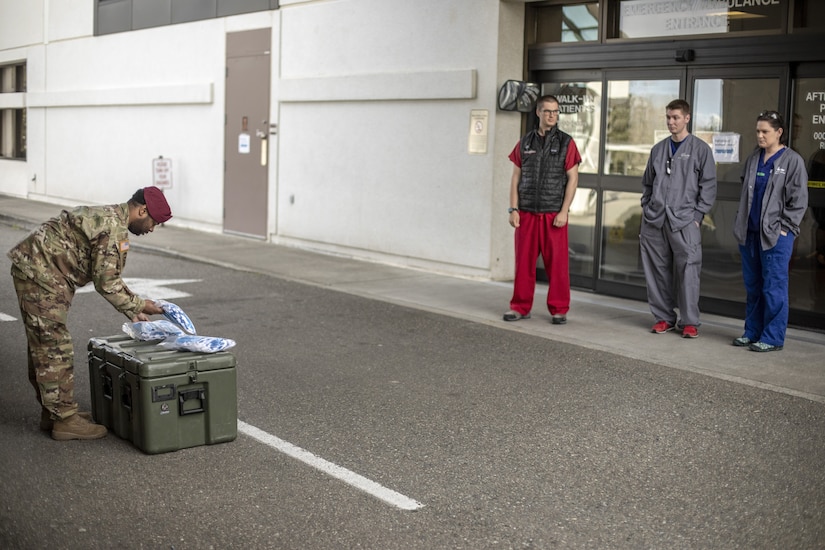Hobbled by secrecy and timidity, the U.S. intelligence community has been conspicuously absent from efforts to combat the COVID-19 pandemic, the most serious national and global security challenge of our time.
The silence of intelligence today represents a departure from the straightforward approach of then-Director of National Intelligence Dan Coats who offered the clearest public warning of the risk of a pandemic at the annual threat hearing of the Senate Intelligence Committee in January 2019:
“We assess that the United States and the world will remain vulnerable to the next flu pandemic or large-scale outbreak of a contagious disease that could lead to massive rates of death and disability, severely affect the world economy, strain international resources, and increase calls on the United States for support,” DNI Coats testified.
But this year, for the first time in recent memory, the annual threat hearing was canceled, reportedly to avoid conflict between intelligence testimony and White House messaging. Though that seems humiliating to everyone involved, no satisfactory alternative explanation has been provided. The 2020 worldwide threat statement remains classified, according to an ODNI denial of a Freedom of Information Act request for a copy. And intelligence agencies have been reduced to recirculating reminders from the Centers for Disease Control to wash your hands and practice social distancing.
The US intelligence community evidently has nothing useful to say to the nation about the origins of the COVID-19 pandemic, its current spread or anticipated development, its likely impact on other security challenges, its effect on regional conflicts, or its long-term implications for global health.
These are all topics perfectly suited to open source intelligence collection and analysis. But the intelligence community disabled its open source portal last year. And the general public was barred even from that.
It didn’t — and doesn’t — have to be that way.
In 1993, the Federation of American Scientists created an international email network called ProMED — Program for Monitoring Emerging Diseases — which was intended to help discover and provide early warning about new infectious diseases.
Run on a shoestring budget and led by Stephen S. Morse, Barbara Hatch Rosenberg, Jack Woodall and Dorothy Preslar, ProMED was based on the notion that “public intelligence” is not an oxymoron. That is to say, physicians, scientists, researchers, and other members of the public — not just governments — have the need for current threat assessments that can be readily shared, consumed and analyzed. The initiative quickly proved its worth.
In fact, it has continued to prove its worth up to the present day.
“It was notices on ProMED that first alerted the world to the 2003 SARS outbreak, and it was a posting on ProMED on Dec. 30, 2019 — about chatter on the Chinese social network Weibo — that first spread word of a novel coronavirus, soon identified as the cause of COVID-19, outside China.” See “The doomed 30-year battle to stop a pandemic” by Paul Wells, Maclean’s, April 21.
ProMED, which is now managed by the International Society for Infectious Diseases, is unclassified, free, and open to subscription by anyone.
“ProMED illustrates how NGOs can, in some cases, efficiently accomplish what large, bureaucratically burdened institutions cannot even begin,” the FAS Public Interest Report said in 1996.
Today, when national and global security concerns touch almost every household, the need for public intelligence is greater than ever, and it could become one focus of a reconfigured U.S. intelligence apparatus.
Steven Aftergood

Steven Aftergood directs the FAS Project on Government Secrecy. The Project works to reduce the scope of national security secrecy and to promote public access to government information.
Steven Aftergood directs the FAS Project on Government Secrecy. The Project works to reduce the scope of national security secrecy and to promote public access to government information.
He writes Secrecy News, which reports on new developments in secrecy policy and provides direct access to significant official records that are otherwise unavailable or hard to find.
In 1997, Mr. Aftergood was the plaintiff in a Freedom of Information Act lawsuit against the Central Intelligence Agency which led to the declassification and publication of the total intelligence budget for the first time in fifty years ($26.6 billion in FY 1997). In 2006, he won a FOIA lawsuit against the National Reconnaissance Office for release of unclassified budget records.
Mr. Aftergood is an electrical engineer by training (B.Sc., UCLA, 1977). He joined the FAS staff in 1989. From 1992-1998, he served on the Aeronautics and Space Engineering Board of the National Research Council.
His work on challenging government secrecy has been recognized with the Pioneer Award from the Electronic Frontier Foundation, the James Madison Award from the American Library Association, the Public Access to Government Information Award from the American Association of Law Libraries, and the Hugh M. Hefner First Amendment Award from the Playboy Foundation.
Become a Patron!
True Information is the most valuable resource and we ask you to give back



![[Image]](https://i0.wp.com/cryptome.org/michael-sorkin.jpg)


